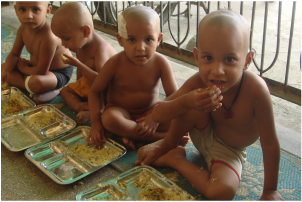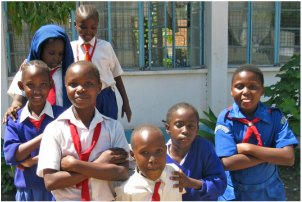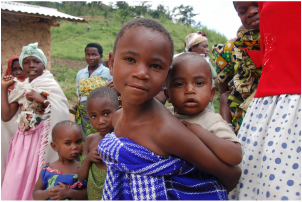The global hygiene crisis
|
Practicing good hygiene, such as hand washing with soap, significantly reduces the spread of disease and illness. This means behaviour change is an essential part of the solution, alongside providing clean water and safe sanitation.
More than two billion people around the world live with unrelenting illness due to diarrhoea or intestinal parasites, most of which are soil-transmitted. Children suffer a disproportionately high share of diseases related to WASH (water, sanitation and hygiene). Parasitic infections and other diseases caused by poor hygiene not only deprive the world's poorest people of health and well-being but also prevent them from ever being able to lift themselves out of poverty – whether that's because children have lost many days of schooling or workers are less productive through illness. |
An estimated 47% of nine- to five-year-olds Good hand washing with soap can make an enormous difference. Studies show it can |
What does this mean for...
...children's lives?Among children aged under 14 worldwide, more than 20% of deaths and years of illness are attributed to unsafe water, poor sanitation and insufficient hygiene. Chronic worm infections are also the underlying cause of malnutrition and stunted growth.
|
...children's education?Chronic worm infestations and diarrhoea rob children of an estimated 200 million years of schooling. Virtually all of this occurs in low-income and middle-income countries. Worm infections can also delay intellectual development, with an average IQ loss per worm infection of 3.75 points.
|
...children's families?Poor sanitation and hygiene in schools affects the wider community. Children who pick up infections at school can bring home microbes that may infect half of their family. On the other hand, teaching children good hygiene in school has a positive influence on families back home.
|
Picture credits, clockwise from top: Washing hands in Vietnam, by Truong Viet Hung/UNICEF Vietnam. Big sister with baby, Uganda,
by Dylan Walters. Kenyan schoolchildren, by Mary Bellekom. Children in Vrindavan, Utter Pradesh, India, by Victoria Finlay.
by Dylan Walters. Kenyan schoolchildren, by Mary Bellekom. Children in Vrindavan, Utter Pradesh, India, by Victoria Finlay.



